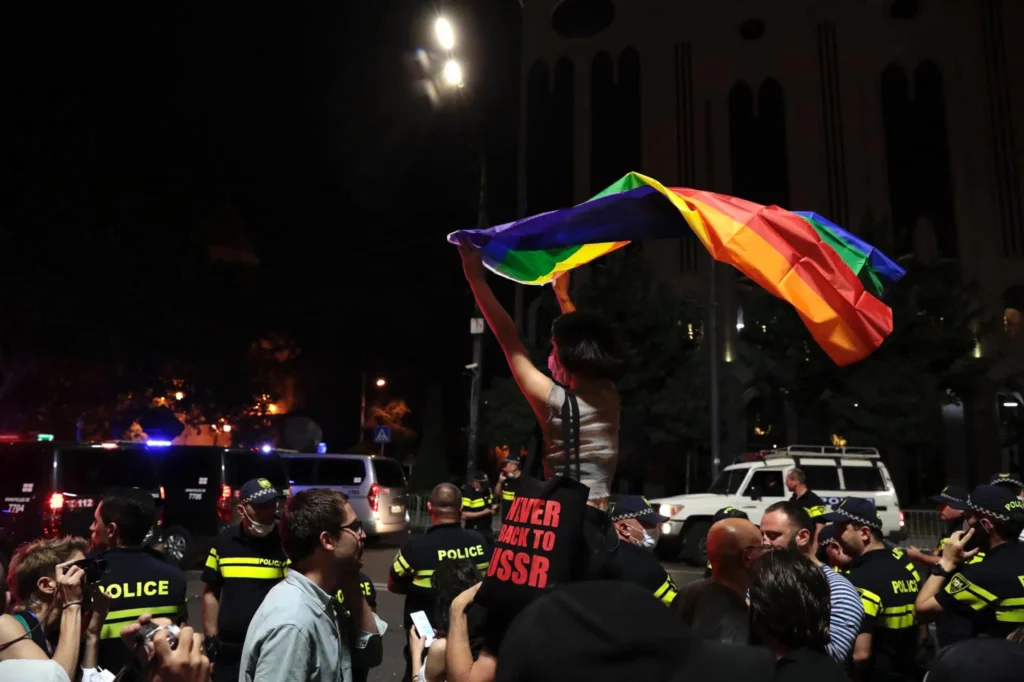Georgia, a deeply religious and conservative country, has become a battleground for LGBTQIA+ rights. Amid a wave of anti-LGBTQIA+ legislation, rising social tensions, and entrenched public hostility, Georgia’s queer community is waging a fight for equality and recognition that has only intensified in recent months.
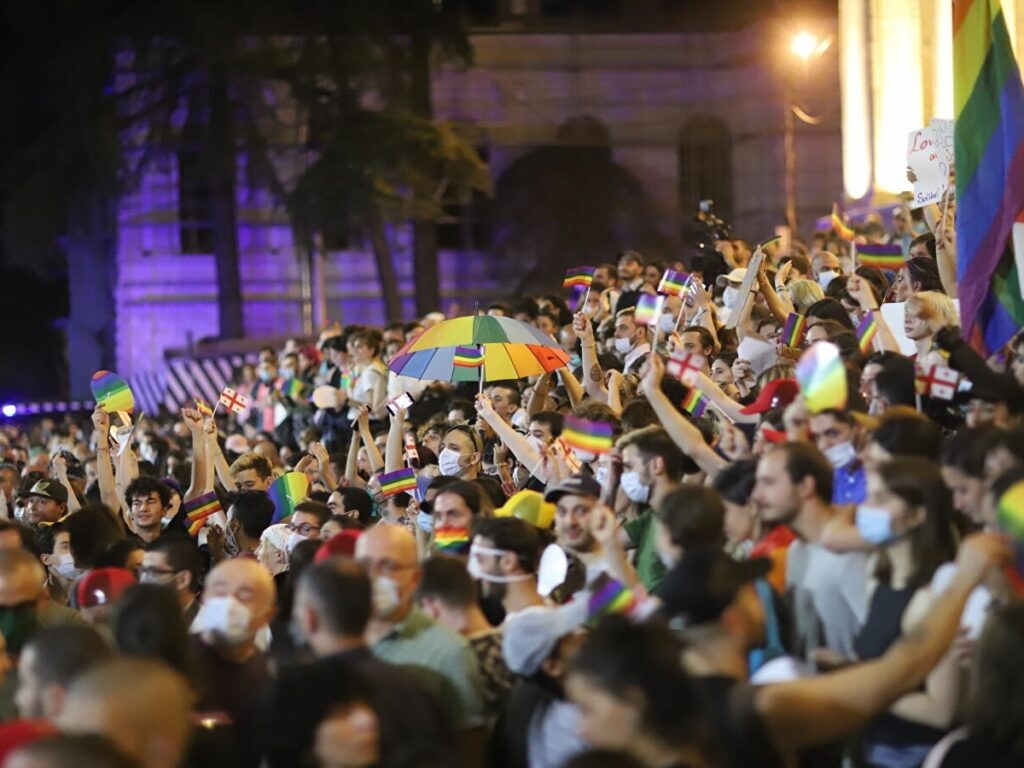
On September 17, 2024, Georgian lawmakers passed a restrictive law under the guise of “family values and the protection of minors,” marking a severe curtailing of LGBTQIA+ rights. This sweeping legislation provides a legal basis to ban Pride events, censor LGBTQIA+ content, and reaffirms bans on same-sex marriage and gender reassignment procedures. Proposed by the ruling Georgian Dream party, the law is seen as a desperate attempt to shore up conservative support ahead of elections, even as it risks severing ties with Western allies.
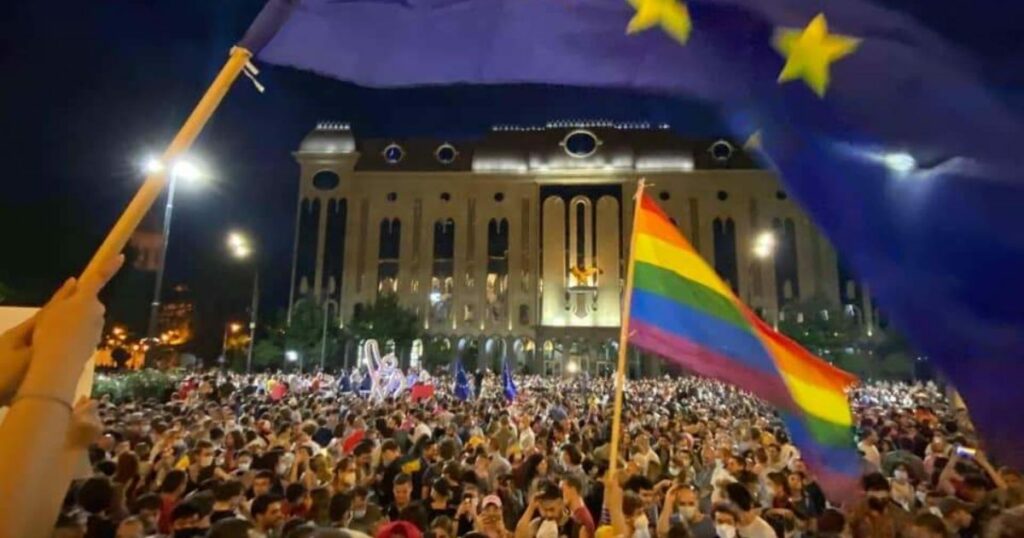
The law, officially enacted in October 2024 despite President Salome Zourabichvili’s veto and widespread international condemnation, has already had severe consequences for Georgia’s LGBTQIA+ community. Activists report a rise in discrimination and violence, and public expressions of queer identity are increasingly suppressed under the guise of protecting “family values.” This includes the erasure of May 17 as the International Day Against Homophobia, Biphobia, and Transphobia, now reframed as the “Day of the Sanctity of the Family and Respect for Parents.”
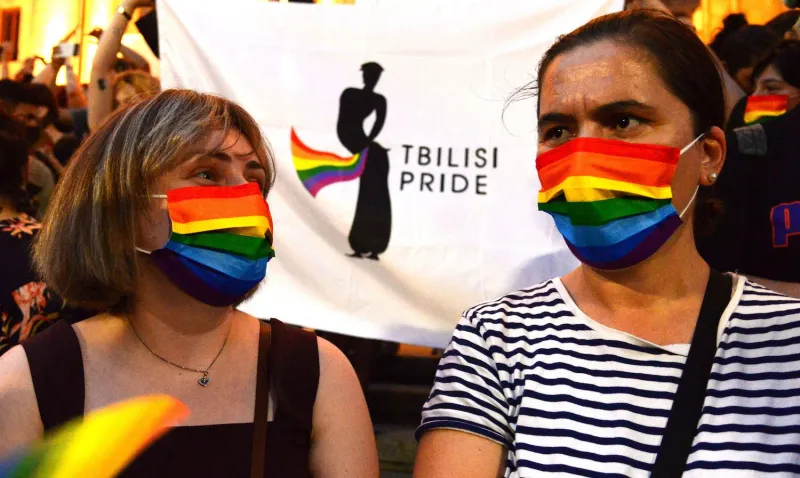
The law is part of a broader crackdown reminiscent of Russia’s “LGBTQIA+ propaganda” law, which has long been used as a tool of repression. Georgian Dream leaders, aligned with the Orthodox Church’s strong conservative influence, argue that the legislation is necessary to protect “traditional moral standards.” For the queer community in Georgia, however, it is a devastating blow. As Mariam, a prominent activist with Tbilisi Pride, shares, “These bills are nothing more than a political tool. They’re meant to stir homophobia, dehumanize us, and erase our presence from public life.”
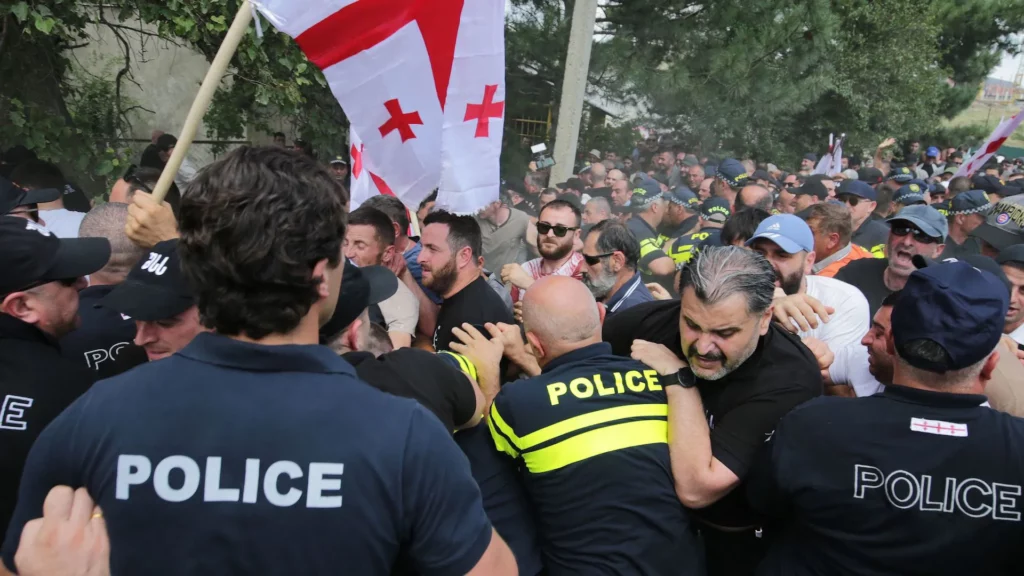
A Legal Fight Against Censorship
At the same time, a pivotal legal battle is underway to contest the censorship of LGBTQIA+ content in Georgia. A federal lawsuit, filed by the Southern Poverty Law Center and the Southern Education Foundation, challenges anti-LGBTQIA+ book bans under Georgia’s restrictive education laws. Initiated after an elementary school teacher was fired for reading My Shadow is Purple—a book with an anti-bullying message—to her class, the case argues that such bans infringe on free speech and violate constitutional protections. For Georgia’s LGBTQIA+ community, this lawsuit has become a powerful statement, asserting their right to exist openly and share their stories in public spaces.
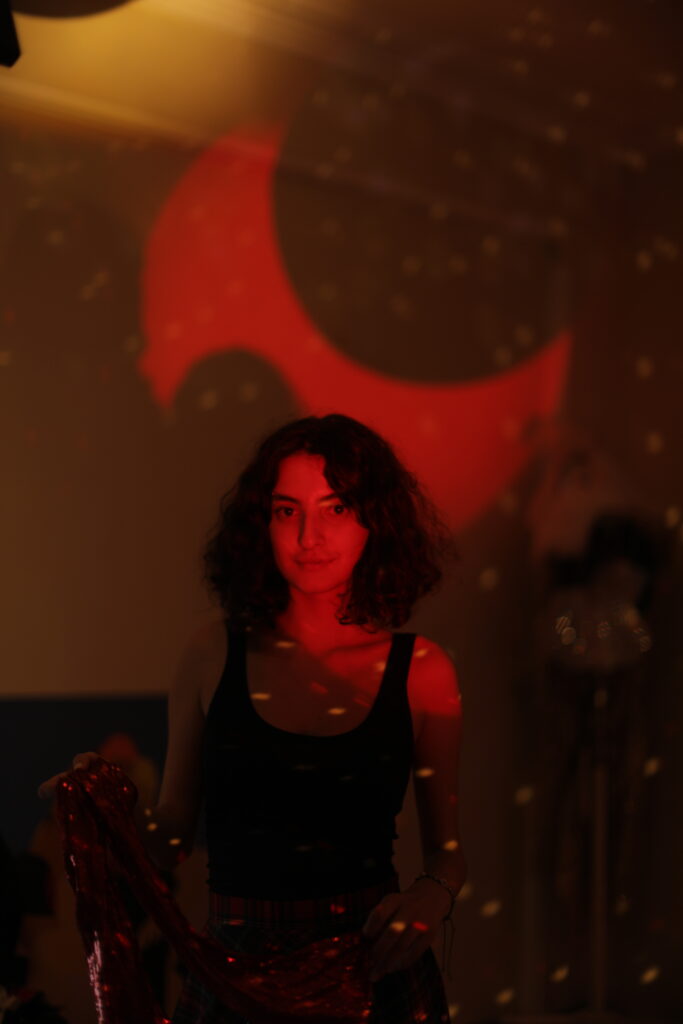
The Power of Activism: A Conversation with Mariam, a Tbilisi Pride Activist
In an interview, Mariam recounts her journey to becoming an activist. “Activism is in my blood, but my commitment to LGBTQIA+ rights was truly ignited on May 17, 2013,” she says, recalling how a peaceful protest by LGBTQIA+ individuals was brutally attacked by far-right extremists. “That event left a lasting mark on me. I realized that I couldn’t stay silent—I had to fight back.” Now, at the forefront of the struggle, Mariam sees her activism as essential to safeguarding queer rights in Georgia, even as she and her peers face harassment and violence at nearly every turn.
Mariam explains that the Orthodox Church’s influence on public opinion is pervasive, creating a fraught environment for LGBTQIA+ events and pushing narratives that fuel discrimination. “The Church often supports far-right groups that attack our Pride events,” she explains. “With around 80% of Georgians identifying as Orthodox, the Church’s stance heavily shapes public attitudes.” Amid this hostility, Pride events have become dangerous undertakings, where activists face physical violence, state resistance, and community backlash. Yet the government, far from protecting these citizens, appears complicit in the suppression of queer rights.
Resilience in the Face of Adversity
Despite these mounting challenges, Georgia’s LGBTQIA+ community remains resilient. Organizations like Tbilisi Pride continue to create safe spaces and advocate for queer visibility, providing crucial resources like legal assistance and mental health support. July 2021 was a dark time for Georgia’s queer community; during a Pride event, activists and journalists were violently attacked, resulting in the tragic death of a cameraman. Yet the very next day, the streets of Tbilisi were filled with supporters waving a massive Pride flag in front of the Georgian Parliament—a powerful act of defiance and solidarity.
International Support Matters
As Mariam emphasizes, “We need the world’s eyes on Georgia, especially with the upcoming elections. Your support is crucial. Spread awareness, monitor the elections, and help ensure that our rights are protected. Georgia’s LGBTQIA+ community can’t do this alone.” In a landscape where every legislative measure feels like an attempt to erase queer lives, the resilience and courage of Georgia’s LGBTQIA+ community serve as a beacon of hope. The road ahead may be difficult, but their fight for equality and visibility continues undaunted, a testament to the indomitable spirit of activism in the face of repression.
Misschien wilt u ook
-

Queens of the South: When Nice Turns Carnival into Queer Celebration
On 27 February 2026, Place Masséna in Nice will shimmer a little brighter. Lou Queernaval,
-

Cœur de pirate at AB: the runaway pop of a queer icon lands in Brussels
A major figure in Francophone pop and an outspoken voice in the queer community, Cœur de pirate
-
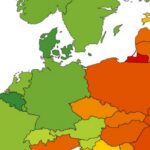
Safer on Paper, Not in Reality”: ILGA Warns of Rising Anti-LGBTQIA+ Violence in Belgium
Belgium still ranks among Europe’s most protective countries for LGBTQIA+ people on paper – yet
-

“March Is for the Queers”: Why You Should Put Queer March Ghent 2026 on Your Radar
Every March, Queer March turns Ghent into a month-long celebration of queer life, resistance, and
-

Six Charming Princes for Three Castles: LGBT Couples Rebuilding France’s Fairy‑Tale Landscape
First, there were princesses in towers waiting for some vaguely straight prince on a horse.

